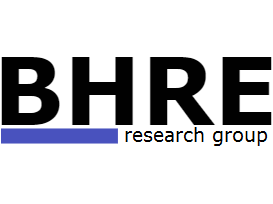Header Photo Credit: ©
Modern slavery statement checker.
oLGA mARTIN-oRTEGA AND aNDY dAVIES (2019)
Modern Slavery Statement Checker. Points to Check for when Reviewing a Suppliers Modern Slavery Statement.
The Modern Slavery Checker has been published by CIPS Knowledge and written by Olga Martin-Ortega and Andy Davies. The Modern Slavery Statement Checker identifies six signs of a good statement to look for, along with six more things that may suggest your supplier needs to improve. It’s designed to help buyers and other stakeholders spot good practice in transparency reporting. As a responsible buyer, you’ll want to be sure that your suppliers are taking the necessary steps to make their supply chains more transparent. You’ll be checking that they’ve each published an annual Slavery and Human Trafficking Statement that is compliant with section 54 of the UK Modern Slavery Act 2015. But would you know how to tell a good statement from a bad one?
Click here to access the Checker.
This is how it can be cited: Olga Martin-Ortega and Andy Davies, Modern Slavery Statement Checker. Points to check for when reviewing a suppliers modern slavery statement. CIPs Knowledge 2019.
Preparing a Slavery and Human Trafficking Statement: Guidance for Higher Education
This Guidance is aimed at Higher Education providers and is part of BHRE’s work to support efforts towards more responsible social procurement and encourage institutions to respect, protect and promote human rights through their purchasing decisions. This Guidance aims to highlight useful insights and support those responsible for the preparation of their Slavery and Human Trafficking Statement but does not intend to provide a template or a “do this and you will be done with the Statement” guide. Statements should reflect the process of due diligence in your institution and the journey towards understanding your responsibility towards those who provide the products and services you procure.
This Guidance is based on our research and interactions with public buyers. We have kept is short and user-friendly, avoiding overloading the reader with data. In order to avoid providing statements which could be read as templates we have stayed clear of specific examples found in existing Statements. It can be accessed here.
It can be cited as Olga Martin-Ortega, Anna Gorna and Patrycja Krupinska, Preparing a Slavery and Human Trafficking Statement: Guidance for Higher Education, BHRE Research Series. Policy Paper 6 (BHRE and HEPA), October 2018 (updated November 2019).
Modern Slavery Transparency in Supply Chains in Local Authorities
Procurement of services is an important part of councils’ expenditure with, local government third party revenue expenditure totalling around £60 billion a year. For Local Authorities to understanding our their supply chains and assessing the risk to those working they need support. It is not easy and requires commitment, support and collaboration. Councils are uniquely placed to be at the forefront of the fight against modern slavery, and are demonstrating awareness and ethical leadership by voluntarily completing modern slavery transparency statements.
The BHRE works with the Local Government Association to support Local Authorities in their development of due diligence and how to report on these steps publicly. We have produced an Aide Memorie to accompany existing guidance on TISC statements,. It is aimed at providing practical advice on how to draft a first statement; what to include; where to publish it and how to avoid some of the common pitfalls. It can also be used to assist those looking to build on previous statements; to implement year-on-year improvements and evidence the practical progress on how Local Authorities are tackling the risks and incidence of modern slavery in their operations and supply chains. The Aide Memoire, updated in 2020, and other useful resources for Local Authorities are available at the Local Government Association website.
E-Learning for Public Procurement Practitioners: Protecting Human Rights in the Supply Chain
BHRE, in collaboration with our partners LUPC and APUC, has developed an eLearning suite on Protecting Human Rights in the Supply Chain, developed especially for public procurement practitioners.
The eLearning is designed for users to learn why protecting human rights in the supply chain is important to the public sector, how to assess and prioritise risks, monitoring supply chains, responding to abuses and measuring and reporting effectiveness. There’s also a module on compiling the annual Slavery and Human Trafficking Statement under the Modern Slavery Act specially focused on public buyers.
The suite was written by Dr Olga Martin-Ortega and LUPC Director, Andy Davies FCIPS.
To access the e-learning suite for free please click here and register your details. The eLearning suite is hosted by LUPC. LUPC will only use this data in relation to modern slavery communications and not for sharing with third parties.
Protecting Human Rights in the Supply Chain. A Guide for Public Procurement Practitioners
The Guidance, authored by Andy Davies and Olga Martin-Ortega, is published by the Chartered Institute for Procurement and Supply (CIPS) Knowledge. Written specifically for public procurement practitioners, the guide offers encouragement for buyers, decision makers and opinion-formers to identify and understand the risks, develop appropriate mitigating actions and promote respect for human rights in public supply chains. The guide sees a collaboration between CIPS and partners London Universities Purchasing Consortium (LUPC), Advanced Procurement for Universities and Colleges (APUC) and BHRE. The Guidance is available here.
Protecting Human Rights in the Supply Chain. A Guide for Public Procurement Practitioners (CIPS, 2017).







